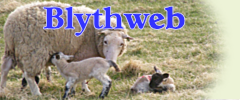Bad Behaviour in Wenhaston in 1680 by Keith Johnceline
In 1680 there were two Constables in Wenhaston and one in Mells, appointed by the Justices of the Peace and serving for one year. The list of their duties reveals what was considered to be unacceptable behaviour in the late seventeenth century:
- Not attending church on four successive Sundays
- Hanging out a lantern without a light
- Not sending a team to repair the highway when ordered
- Selling ale without a license
- Having a dangerous and offensive chimney
- Cutting turf on the common
- Carrying a load of gravel away
- Destroying part of the common through digging
- The nuisance of muck, making a dunghill
- Craftsmen exercising trade, without first having served a legal apprenticeship
- Keeping greyhounds or setting dogs, nets or guns without qualified to law
- Harbouring vagrants
- Abusing or beating the Constable
- Using slanderous and baleful words to his wife
- Labourers erecting cottages on waste land without leave from the Quarter Sessions
For quick punishment most villages had their stocks, whipping posts and, where they had a pond, a ducking stool. Wenhaston had all three! At Beccles Quarter Sessions in 1744, Sarah Culver was sentenced to be publicly whipped for feloniously taking three loaves of bread from the house of John Stratford of Wenhaston. The village inhabitants also made regular appearances at the Halesworth Petty Sessions, as the Justices’ Minute Book shows, for such crimes as assault, larceny, highway offences and drunkenness, although we should not assume that Wenhaston was unusually lawless for the time.
There were more severe punishments available. Robert Gissing was transported in 1824 for stealing a quantity of beans from the executors of Martha Webb of Wenhaston. In the same year James Woodgate was convicted at Ipswich Sessions for stealing a grey mare pony from John Newby of Wenhaston. He was transported for 14 years. Smuggling, of course, was more of a vocation than a crime in these parts, although the authorities took the latter view. One Wenhaston man who attracted their attention was George Butcher, a merchant, owner of wherries, and one time landlord of the Harbour Inn at Southwold. He lived in Wenhaston and a sad entry in the diary of James Maggs of Southwold reveals that in 1855 he was sent to Ipswich Gaol for smuggling.
Sources:
Suffolk Record Office, Ipswich, Wenhaston Parish Records Constables Account, FC 189 11/1–3;
The Southwold Diary of James Maggs, 2 vols 1818–1848 and 1848–1876, Suffolk Records Society vols XXV
and XXVI (Woodbridge, 1983–84).
Keith Johnceline, Wenhaston, November 1995.
Back to the History Index
Some Favourite Websites For April 2025:
Walberswick Ferry – Offering river trips as well as special occassion bookings
Climb aboard the launch Daybreeze and follow the River Blyth towards Blythburgh through Walberswick Nature Reserve - an Area of Outstanding National Beauty.
Stoneware Birds – Life-sized handmade and unique British birds, now available to buy online.
A charming unique gift or a treat for oneself. See the website to know how each one is made. Now available to buy online. Each bird is an individual creation, varying in choice from the perky wren to the plump bullfinch together with other well-loved British birds. Which will you choose?
Waveney Wholesale – Suppliers of toys, novelties, giftware, china, housewares, pet items, beach goods and so much more
Established Halesworth-based suppliers with over 3000 lines stocked. On-line ordering or call and collect.
George Borrow Trust – Explore about the well travelled 1800s poet George Borrow
The George Borrow Trust aims to advance the education of the public in the life and works of George Borrow in particular, by means which preserve, exhibit and study his writings and works and other material objects connected with or tending to perpetuate his memory or to throw light on his life and work.
Andy Seedhouse Boats – Andy Seedhouse Boats, Woodbridge - Boat Sales
A friendly and professional family-run business with an old-fashioned approach to customer service, located on the picturesque waterfront at Woodbridge on the River Deben. From dinghies and day boats to fishing boats and yachts, and even including liveaboard boats too, Andy brings his many years of experience in helping his customers buy and sell. Also chandlery, trailers, etc.
